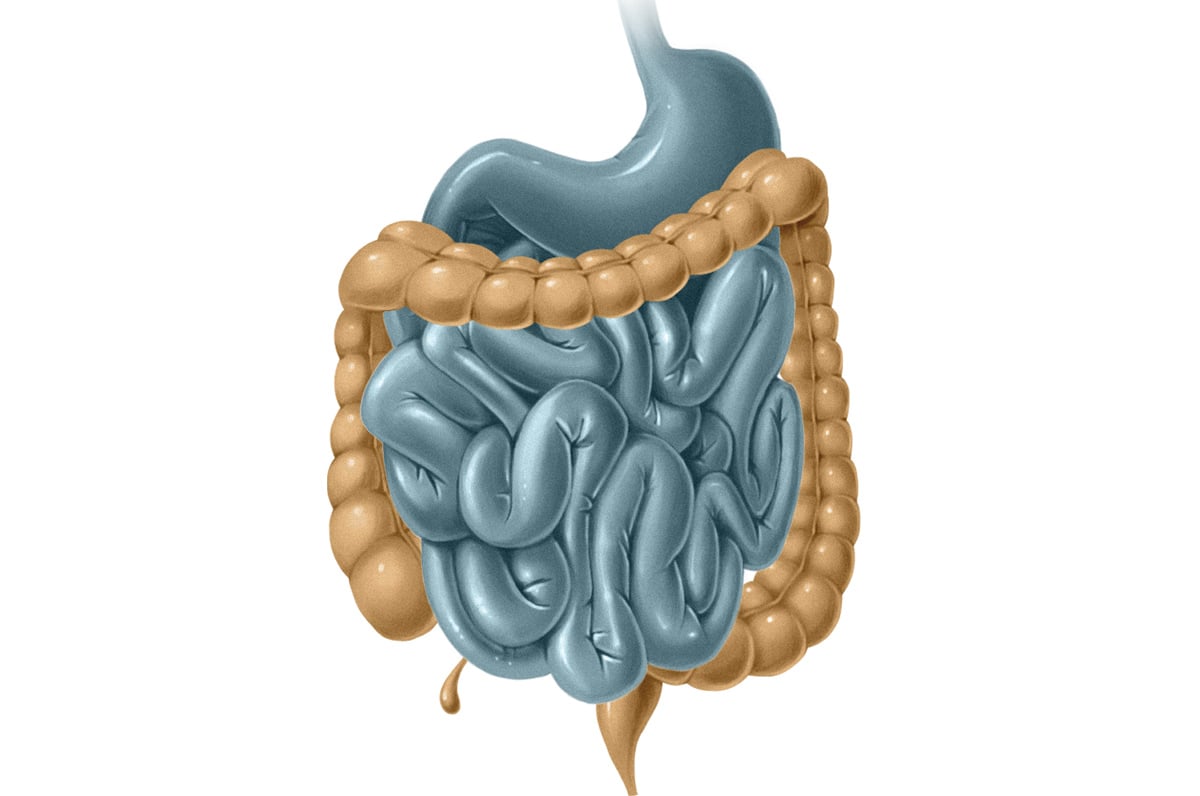
“Food additives” is an incredibly general term - as a rough definition: a food additive is something added to food to make it last longer on the shelf, look better, maintain a desirable color or flavor for a longer time, or improve tastiness. Salt could be considered an additive (salting meat to preserve it is one of the oldest ways of preserving anything), but when most people think of additives, they think of compounds like titanium dioxide, which is used to whiten foods like gum and powdered sugar.
Most people have a vague idea that additives are “bad,” but it’s rare to find a person who can actually explain why they think that (“they’re unnatural” doesn’t count as an explanation - “natural” isn’t automatically good and “unnatural” isn’t automatically bad.) So here’s a look at one reason why food additives might not be great for general good health: they damage the gut lining in ways that cause inflammation, promote weight gain, and may be connected to autoimmune and allergic disease.
How Food Additives Affect Weight and Immune Health: It Starts in the Gut
Compared to, say, a panda’s gut, the human digestive system is amazingly versatile. We don’t have to eat all bamboo, only bamboo, all day long. We can branch out into all kinds of plants and animals - and once we start cooking them in different ways, the possibilities are even more fun. Lucky us! But there are some things the human gut just isn’t super well-equipped to handle, and a lot of food additives are among those things.
Food Additives and the Gut Mucosa

Did you know that you have a layer of mucus in your gut? It sounds gross, but it’s actually really important, because the mucus layer protects all the helpful bacteria (and other friendly organisms) down there from anything bad you happen to swallow. A specific type of food additives called emulsifiers may damage the gut mucus layer and end up causing trouble in the newly-unprotected gut biome (that’s all the friendly organisms living in your gut)
Emulsifiers are additives that prevent mixtures from separating. For example, commercial salad dressings contain emulsifiers to hold the oil and vinegar together, when normally the oil and vinegar would separate out.
What’s the evidence that emulsifiers aren’t great for us? This study was in mice, but it did demonstrate that emulsifiers cause disruption to the gut biome. Specifically, two common emulsifiers (carboxymethylcellulose and polysorbate-80) damaged the protective layer of mucus that covers the bacteria and other organisms in the gut. This altered the species composition of the gut microbiome, causing low-level chronic inflammation and contributing to the development of metabolic syndrome.
This review also stressed the effect of emulsifiers in particular on the gut mucosa. They really don't seem to be great news for gut health, with ramifications that extend to overall inflammatory load and metabolic well-being.
Food additives and the gut microbiome
There’s also evidence that various food additives directly affect the beneficial bacteria and other organisms that live in the human intestinal tract.
One study found that several different food additives inhibit the growth of some human bacteria - at least in test tubes. And the worst part is that it’s the anti-inflammatory microbes (aka the ones you definitely want) that seem to be particularly vulnerable to death by additive.
Here, for example, researchers basically tested out a model human gut with the amount of titanium dioxide that you’d get from eating a few pieces of candy or chewing a few pieces of gum. They found that the titanium dioxide shifted the composition of the gut bacteria even after just the one exposure - now think of how many people chew several pieces of gum or eat multiple pieces of candy every day. At least in test tubes, sulfites also kill beneficial bacteria. Sulfites are additives often found in wine and citrus juices to keep them fresh.
All that messing with the gut biome has consequences. Gut bacteria have a powerful effect on weight and metabolic health, and creating an environment where the gut biome is chronically exposed to gut-damaging additives probably isn't a great idea. Here, the authors go over several kinds of additives, including not only emulsifiers but also carrageenan, a thickening/stabilizing agent used in processed food products like dairy desserts, plant milks, and sauces. After reviewing the literature, the researchers found evidence that most of the additives they looked at disrupt the normal gut biome in pro-inflammatory ways that promote insulin resistance and weight gain.
Food additives and the gut: miscellaneous issues

Food additives may also affect the gut-brain axis. The gut-brain axis is the two-way pathway between the digestive system and the brain - it has a huge effect on overall mood and mental well-being.
And one last concern: this article speculates that food additives might be one piece of the explanation (not the whole answer! But one piece!) for the rise in autoimmune diseases. In the “food additives” category, they included salt and sugar in the overly-high amounts found in most processed foods. Specifically, by damaging the intestinal lining, food additives increase intestinal permeability and make people more prone to autoimmune reactions. This is pretty speculative, but interesting especially for folks who struggle with autoimmunity.
In short: ultra-processed food is not great news...and it’s not just the fat and the sugar
The normal array of processed junk food in a typical grocery store - Spaghetti O’s, Lucky Charms, Nutella, ice cream, Hostess cakes, the entire candy aisle - contains a lot of additives that probably aren’t great for the human gut. This is actually supported by research; it isn’t just a baseless fear of strange-looking words on ingredients lists (“Sugar” is easy to pronounce; that doesn’t make it good for you. “Eicosapentaenoic acid” is hard to pronounce; that doesn’t make it bad for you.).
Over years and decades of exposure, some of these additives probably do damage the human gut lining and the millions of friendly microbes that live there. None of the evidence above suggests that there are immediate and dramatic consequences, but they do indicate a slow accumulation of chronic issues that have serious cumulative implications. Do your gut a favor and stay away from hyper-processed foods to limit your exposure - your bacteroidetes will thank you!





Leave a Reply